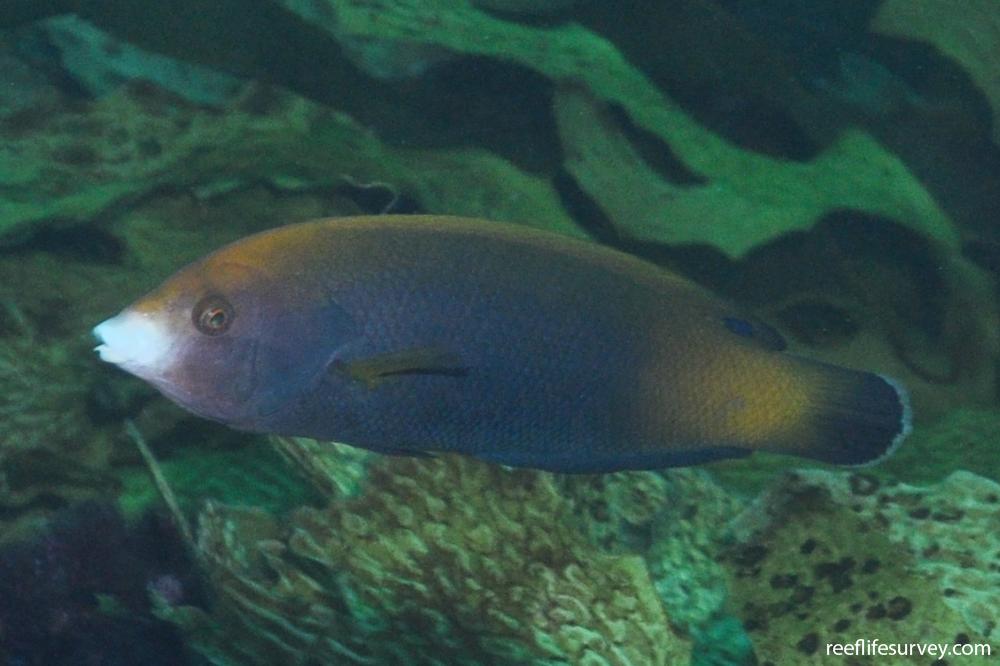Anampses geographicus
Scribbled chisel-toothed wrasse | Geographic Wrasse | Lined Chisel-tooth Wrasse | Olive-green WrasseSimilar Species
Same Genus
Distribution
Temperate Australasia, Tropical Indo-Pacific
Description
Dark red-brown, females with a white mouth, dark tail with narrow transparent margin and large ocelli on rear of dorsal and anal fins which are difficult to see unless fins extended, form small groups with other females. Males infrequently seen, also dark red-brown but with scribbled lines on head and small blue dashes on body, difficult to distinguish from male A. meleagrides (Speckled Wrasse), which differs by having large blue spots on sides.
Information
Max Size: 31 cm
Sea Temperature Range: 17.8-29.4°C
Depth: 1-25m
Habitat Generalization Index: 22.97
Also referred to as the SGI (Species Generalisation Index), this describes the habitat niche breadth of the species. Species with values less than 15 are found in a relatively narrow range of reef habitat types (specialists), while those over 25 may be found on most hard substrates within their range (generalists). Learn more here.
Conservation and Rarity
IUCN Status: Least Concern
Occurrence: Frequent (12.8% of sites)
Occurrence describes how often the species is found on surveys within its distribution. It is calculated as the % of reef sites surveyed by RLS divers across all the ecoregions in which the species has been observed
Abundance: Several (5 per transect)
Abundance is calculated as the average number of individuals recorded per RLS transect, where present.
Edit by: Joe Shields




















